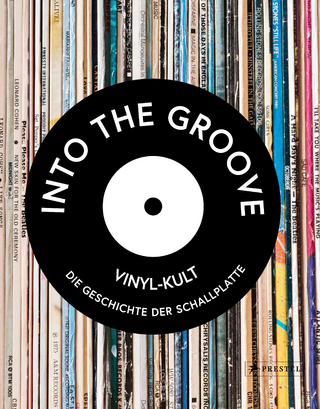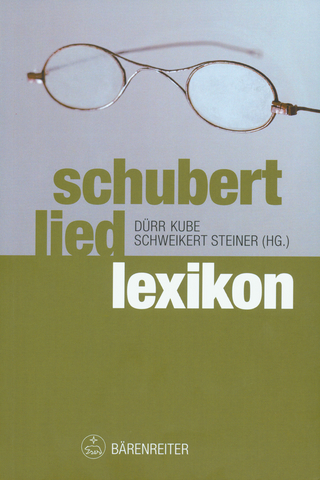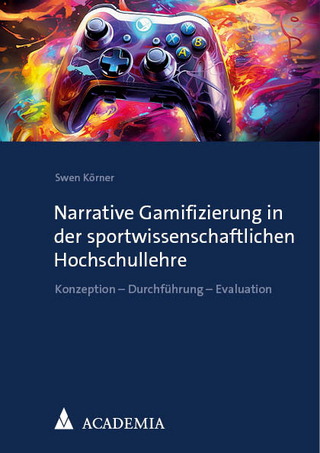
Understanding the Music Industries
SAGE Publications Ltd (Verlag)
978-1-4462-0794-9 (ISBN)
Everyone knows music is big business, but do you really understand how ideas and inspiration become songs, products, downloads, concerts and careers? This textbook guides students to a full understanding of the processes that drive the music industries. More than just an expose or ′how to′ guide, this book gives students the tools to make sense of technological change, socio-cultural processes, and the constantly shifting music business environment, putting them in the front line of innovation and entrepreneurship in the future.
Packed with case studies, this book:
• Takes the reader on a journey from Glastonbury and the X-Factor to house concerts and crowd-funded releases;
• Demystifies management, publishing and recording contracts, and the world of copyright, intellectual property and music piracy;
• Explains how digital technologies have changed almost all aspects of music making, performing, promotion and consumption;
• Explores all levels of the music industries, from micro-independent businesses to corporate conglomerates;
• Enables students to meet the challenge of the transforming music industries.
This is the must-have primer for understanding and getting ahead in the music industries. It is essential reading for students of popular music in media studies, sociology and musicology.
Dr Chris Anderton is Associate Professor in Cultural Economy at Solent University, Southampton, UK. His research interests focus on the music industries, music culture and music history. He is author or co-editor of several books including Understanding the Music Industries (2013), Music Festivals in the UK. Beyond the Carnivalesque (2019), and the forthcoming books Media Narratives in Popular Music and Researching Live Music: Gigs, Tours, Concerts and Festivals. He has also guest edited issues of the academic journals Rock Music Studies and Arts & the Market, and published in numerous other edited collections and journals. Martin James is professor of music industries at Southampton Solent University. Martin joined Southampton Solent University from the University of Sunderland in July 2007. He studied for his first degree at Nottingham Trent University where he was awarded a BA (Hons) Communication Studies. He gained an MA Media and Cultural Studies at the University of Sunderland, where he also received a PhD. His doctoral thesis was called ‘Versioning Histories and Genres’, a commentary on his books State of Bass: Jungle – The Story So Far(1997) and French Connections: From Discotheque to Discovery (2002). Prior to becoming a lecturer in 2004, Martin was an internationally renowned music journalist who had worked on the editorial teams of some of the biggest magazines on the market. He also regularly contributed to almost every major music and lifestyle magazine, and numerous daily broadsheet newspapers. Martin has also written several internationally published and critically acclaimed books about music, including biographies of The Prodigy and Dave Grohl. Since 2009 Martin has coordinated Southampton Solent University’s associations with some of the UKs finest independent festivals including Glade, Bestival, Camp Bestival, Blissfields and Common People. Through these link-ups our students have been able to gain experience in various areas of music and media performance and production industries. In 2009 Martin organised the University’s first music industries conference ‘Solent Music Industries Live Event’ (SMILE). Featuring some of the biggest names in the world of music sharing their knowledge with students. SMILEfest is now an annual student organised event that includes gigs, club nights, employability challenges, masterclasses and workshops. In 2014 he co-edited the ‘Music Journalism Special Edition’ of the peer-reviewed International Association for the Study of Popular Music (IASPM) journal.In 2015 Martin launched IAMJREP (The International Association of Music Journalism Researchers, Educators and Practitioners), a collaborative venture with scholars throughout the world.
Introduction
Questioning ′Traditional′ Models of the Music Industry
Structure of the Book
1. Studying the Music Industries
Key Findings
Getting Started
Organizational Structure
Political Economy
Culture Industry
Sociology
Musicology
Metanarrative
Historical Analysis
Technological Development
Media Ecology
Digital Technologies
Issues
Conclusion
Further Reading
2. The Recorded Music Industry
Key Findings
The Structure and Size of the Recording Industry
A Brief History of the Recorded Music Industry
The Majors: Business Structures and Characteristics
The Independent Sector: Definitions and Types
The Ideology of Independence
Strategies for Dealing with Uncertainty and Risk
Conclusion
Further Reading
3. Songwriting and Publishing
Key Findings
Songwriters, Performers and Publishers
Motivations
Songwriting as Commercial Practice
Songwriting Methods and Tools
Music Publishing
Traditional Income Streams
′New′ Income Streams
Sampling
Conclusion
Further Reading
4. Music Production
Key Findings
Changing Models and the Mythology of the Recording Studio
The Production Process
Tracking
Mixing
Mastering
Manufacturing
Production Careers and Roles
Project Studios, MIDI, and Other Developments
Conclusion
Further Reading
5. Music Distribution
Key Findings
Introducing Music Distribution
Physical Distribution
Mass-Market Retailers
Independent Retailers
Second-Hand Retailers
Online Music Distribution
Streaming Services
Music Media Distribution
Unauthorized Distribution
Conclusion
Further Reading
6. Music Promotion
Key Findings
Marketing, Branding and Gatekeeping
The Promotional Campaign
Music Journalism
Radio
Television
Point of Sale Marketing (POS) and In-Store Music
Sponsorships and Endorsements
Grassroots Marketing
Social Media/Mobile Media
Conclusion
Further Reading
7. The Live Music Industries
Key Findings
The Resurgence of Live Music
A Brief History of the Live Music Industry
Motivations for Live Concert Touring
Authenticity and Live Performance
Live Music Sponsorship
Roles and Responsibilities
Live Performance Contracts
Concert and Festival Ticketing
The Relationship between the Recorded and the Live Music Industries
Conclusion
Further Reading
8. Music Audiences
Key Findings
Understanding Music Audiences
Music on the Move: From the Walkman to the iPhone
Music and Social Media Consumption
Heritage and Nostalgia
Record Collecting
Conclusion
Further Reading
9. Copyright and Music Piracy
Key Findings
Introducing Copyright
Copyright Basics
Key Terms in UK Copyright Law
US Copyright Law: Key Differences
Collection Societies
Music Piracy
Music Industry Responses to Piracy
Artist Responses to Piracy
Conclusion
Further Reading
10. Contractual Agreements and Relationships
Key Findings
Artist Management Agreements
Music Publishing Agreements
Recording Agreements
Conclusion
Further Reading
Conclusion
Complexity and Symbiosis
Be Wary of Metanarratives
Diversity and Reorganization
Where Next?
Glossary
| Erscheint lt. Verlag | 14.12.2012 |
|---|---|
| Verlagsort | London |
| Sprache | englisch |
| Maße | 170 x 242 mm |
| Gewicht | 560 g |
| Themenwelt | Kunst / Musik / Theater ► Musik ► Allgemeines / Lexika |
| Sozialwissenschaften ► Kommunikation / Medien ► Medienwissenschaft | |
| ISBN-10 | 1-4462-0794-3 / 1446207943 |
| ISBN-13 | 978-1-4462-0794-9 / 9781446207949 |
| Zustand | Neuware |
| Haben Sie eine Frage zum Produkt? |
aus dem Bereich


